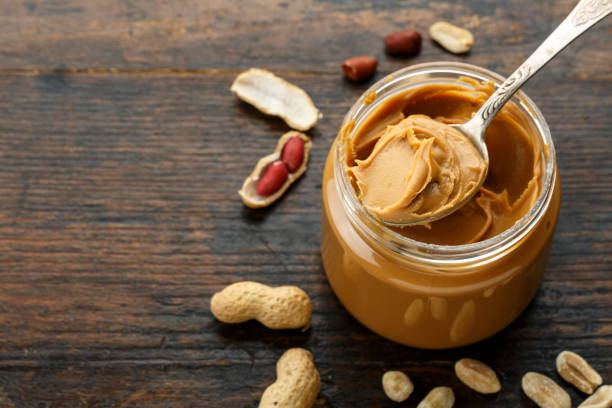Peanut butter is a popular food spread made from ground, dry-roasted peanuts. It is known for its creamy texture and nutty flavour, and is often consumed as a sandwich spread, mixed into baked goods, or eaten on its own as a snack. Peanut Butter is also a good source of nutrients and has been linked to a number of health benefits.
Is Peanut Butter Good for Health?
One of the primary nutrients found in peanut butter is protein. Peanut butter is a good source of plant-based protein, which is important for building and repairing tissues, and for maintaining healthy muscles. Each serving of peanut butter (two tablespoons) contains around seven grams of protein.
Peanut butter is also a good source of healthy fats. The majority of the fat in peanut butter is monounsaturated fat, which has been shown to help lower cholesterol levels and reduce the risk of heart disease.
Peanut butter also contains small amounts of polyunsaturated fat, which is known to be beneficial for heart health.
Is It Okay to Eat Peanut Butter Everyday?
Yes, it is okay to eat peanut butter everyday, however in moderation. It is recommended to not eat more than 2 tablespoon daily.
It's important to note that while peanut butter can be a nutritious and healthful food, it's still important to consume it in moderation. Peanut butter is high in calories and fat, and consuming too much can contribute to weight gain. It's also important to choose a peanut butter that is made with just peanuts and no added sugars, oils or any other added preservatives.
 Shop 100% Dry Roasted Peanut Butter
Shop 100% Dry Roasted Peanut Butter
In addition to protein and healthy fats, peanut butter is also a good source of other nutrients, including:
- Vitamin E: Peanut butter is a good source of vitamin E, an antioxidant that helps protect cells from damage caused by free radicals.
- Niacin: Peanut butter is a good source of niacin, a B-vitamin that helps the body convert food into energy.
- Vitamin B6: Peanut butter is a good source of vitamin B6, which helps the body produce red blood cells and maintain healthy brain function.
- Magnesium: Peanut butter is a good source of magnesium, a mineral that is important for maintaining healthy bones and muscles.
What Are The Health Benefits of Eating Peanut Butter?
Peanut butter has been linked to a number of potential health benefits, including:
- Weight management: Despite being high in fat and calories, peanut butter may actually be helpful for weight management. A study published in the Journal of the American Dietetic Association found that individuals who ate peanuts or peanut butter at least twice a week were less likely to be overweight or obese compared to those who rarely ate peanuts.
- Heart health: The monounsaturated and polyunsaturated fats found in peanut butter may help improve cholesterol levels and reduce the risk of heart disease. A study published in the Journal of the American Medical Association found that individuals who consumed a diet high in monounsaturated fats had a lower risk of heart disease compared to those who consumed a diet high in saturated fats.
- Diabetes management: Peanut butter may be helpful for individuals with diabetes, as it has a low glycemic index (GI) value. Foods with a low GI value are absorbed more slowly by the body, which can help regulate blood sugar levels and prevent spikes in blood sugar.
- Protection against cancer: Some research suggests that the antioxidants found in peanut butter may help protect against certain types of cancer. A study published in the American Journal of Clinical Nutrition found that individuals who consumed a diet high in peanuts had a lower risk of developing colorectal cancer.
In conclusion, peanut butter can be a nutritious and healthful food when consumed in moderation. It is a good source of protein, healthy fats, and a number of important nutrients, and has been linked to a number of potential health benefits, including weight management, heart health, diabetes management, and protection against cancer. However, it's important to remember to choose a peanut butter that is made with just peanuts and no added sugars or oils, and to consume it in moderation as part of a balanced diet.










